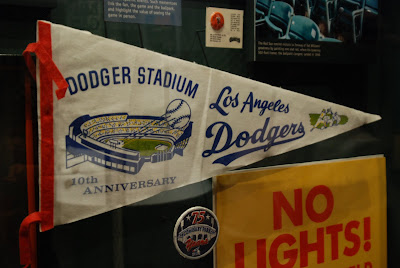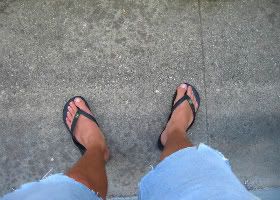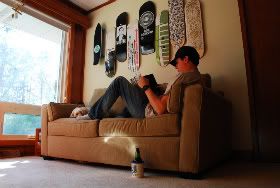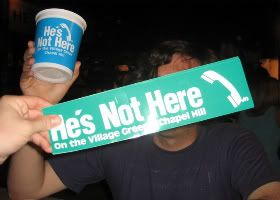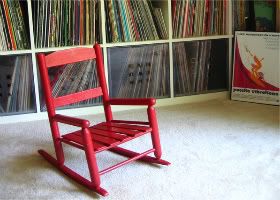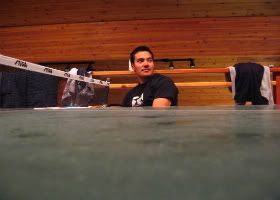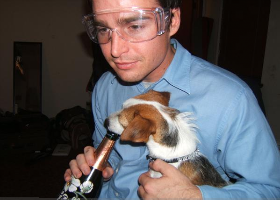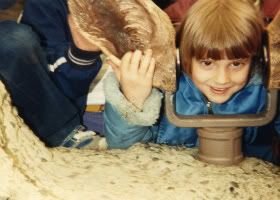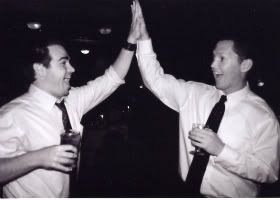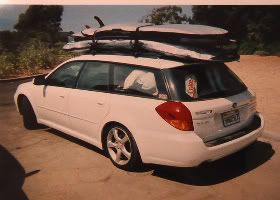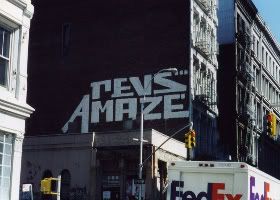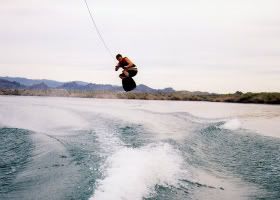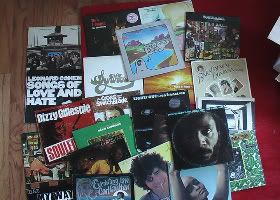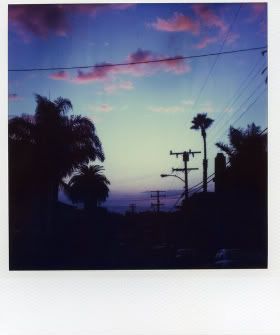I'm quickly blogging from Norwich, NY. The fam and I have cruised through the mid-atlantic states on our way to some sleepaway camp-type fun this weekend. Today we had a blast touring the
. We had the place to ourselves. The senior volunteers made us feel at home, and gave us plenty of tidbits on the collection and surrounding area. In-house were some truly beautiful automobiles; many makes that I had never even heard of. While not rare compared to the 20 or so Franklins in the collection, the above pictured Bel Airs were mint in two senses of the word. Well worth the $9 to get in. I'm also pretty stoked to visit Cooperstown tomorrow.
In other news, I'm not about to turn this site into a Bulls and Fernando Perez fanboy page, but
When the
Indy originally solicited
Durham Bulls outfielder Fernando Perez to write something about a Bull's life in Durham, he said he was too busy. That seemed at first like an excuse, but in fact, as it turns out, Bulls don't have much of a life in Durham, nor time to write about it.
Ballplayers tend to keep very different hours from the rest of us: They roll out of bed quite late, go out for some breakfast at lunchtime and then arrive at the ballpark in the mid-afternoon for practice. As far as Durham is concerned, notes the 27-year-old Perez, visiting ballplayers really like the trips here: Teams stay at the downtown Marriott, which gives them many eating options and the ability to walk to the ballpark. "This is a place where [visiting players] get people to visit them," Perez says. "It's a pretty nice setup."
Perez is of Cuban descent, but he's American and grew up in an affluent New Jersey suburb, where he went to a private high school before attending Columbia University (he's one of just a handful of Ivy Leaguers in baseball). He moves freely and easily between the white, black and Latino players in the Bulls clubhouse (he speaks Spanish fluently) but seems something of an outlier to all. He is a gifted athlete—blazingly fast, he was a child soccer prodigy before he found baseball—yet he speaks more passionately of poetry than he does about the sport he now plays professionally. Perez has in fact gained a sort of cult notoriety as that baseball player who writes poetry.
The lunching Perez, unlike the ballplayer, isn't fast at all. He carefully considers the menu and sometimes has trouble deciding what he wants—most athletes don't seem to care, as long as it's filling—and has a tendency to pick at his food. Each time we went out, it took him more than an hour to eat his modest portion. Perez's speech, too, is slow. He talks the way a poet thinks: self-aware, as though listening to his words as he utters them, revising them, laboring to articulate his ideas.
Perez has had to labor on the field this year, too, the worst of his seven-year pro career—largely the continuing result of injuries he sustained last season. He badly dislocated his wrist in spring training of 2009 and missed several months; last October, he had shoulder surgery to repair a torn labrum. Lately, his shoulder has been hurting again: a few days after our interviews, Perez went on the disabled list.
Perez offered to meet the Indy for a few lunches; he chose the three spots from a roster of places he likes, all located between the house he rents in Walltown and Durham Bulls Athletic Park.
Lunch No. 1: The Federal
Perez seems to decide on the chicken and waffles but changes his mind at the last second and orders grilled beef tenderloin over an Asian stir-fry with black rice—which he ends up not much caring for. He drinks coffee and water.
Independent: It seems like a lot of sports is just trying not to get hurt.
Fernando Perez: Baseball accelerates your aging. I feel very different at 27 than I did at 22. At 22, you can show up to the field and pretty much just start playing—immediately. Now, you see—when you're playing with older guys in Triple-A and the big leagues—you see that there's a long process of trying to prime your body to be able to do anything, all these things that are degenerative to your body. The torque of just taking a swing. If I just rolled in today and just took a swing, I'd feel it in like six different places.
When my editor and I originally talked about this, we wanted to ask you, "What do ballplayers do when they're not playing baseball?" But you probably don't really have a lot of extra time.
It seemed like there was more downtime when I first began. There was literally less going on. The ballparks [in Class A] are not as cozy; guys don't spend as much time there as [in Triple-A]. I don't think we went to the field as early in A-ball. There's nothing to do there.
Do you have obligations to do those community ...
Usually they are voluntary, like a visit to some hospital. Often they're things to your benefit, like if you show up you get like a hundred bucks to sign autographs ... Nobody wants to say it, but that's what everybody's after, 'cause nobody would [play baseball] for free this many times a week. Maybe twice; I don't know what's the appropriate number of times that I would do it for free. That's the underlying thing. It doesn't make it into the papers because it's a very unsexy thing to talk about.
Would you rather I leave that off the record?
No. I don't care.
You've got to make your money while you can, because as soon as you can't, say, throw a curveball anymore ...
You're totally unskilled otherwise. The skill is so narrow, it's played at such a high level. All you have to do is just work on your skill; otherwise you're kind of like an ape. There's nothing to do but to cultivate this skill for which there is an amazingly high demand.
You're gifted with a lot of speed.
Yeah. An inalienable tool, which many guys have.
Do you do things to work on your speed?
I just do things to not deplete it, really. I do things to help myself be able to do the thing that I know how to do. There goes the rabbit, and there I go chasing it, and I know how to it. I'm trying to run as fast as possible all the time. I do things before the game so that, when I do that, I don't hurt myself. When I was in the playoffs for Tampa Bay [in 2008; Perez was often called on in the late innings as a pinch runner], from the sixth inning on, there was an exercise bike and I was just riding the bike, waiting for someone to say, "Go do this, now."
[Conversation turns to food.]
I go into the clubhouse and I watch what you guys are eating [at the team buffet]. Big things of fried stuff and starch. You're an athlete, your job is take care of your body. That [food] can't be useful.
And soda. So much soda. Why is there a soda machine in the clubhouse? Soda? Really? In winter ball—I played in Mexico—all there is is beer and tacos. You hurt your leg? Here's a beer. Put a beer on it.
When did you last play in Mexico?
I played in Mexico in 2007 ... For me, winter ball made more sense because I'd been learning how to hit left-handed [Perez is a natural right-hander who became a switch-hitter in 2006]. I was just getting at-bats. Most guys go down there just to make money because you can make much more money ... It pays much better than Triple-A. The Triple-A minimum is $2,300 [per month]. You can go down there [to Mexico] and make $10,000 tax-free, per month. And if you have a good game, there's some 20s on your chair ... When you're playing in Venezuela, in the Magallanes-Caracas games, it's like a nationally televised event. The stadium's packed, it's an absolute zoo. It's the craziest sporting event I've ever been to. The World Series had nothing on this. They care more.
Are the players really aware of the fans?
Actually, we are. It's important: that buzz. I think about it a lot in terms of just pure entertainment; we're obviously a bunch of showmen. The more people there are, the easier it is to do everything ... I get such a kick out of that in the dugout, when you see how indifferent everybody actually is ... You see somebody hit a home run, and the manager is just like, writing something down. I loved that; I thought that was so funny and impressive when I was in the majors. [Tampa Bay Rays manager] Joe Maddon would say, "If he hits a two-run homer, you're gonna have to go in."
Without saying, "It would be cool if he hit a two-run homer!"
Exactly. And then it happens, and he's just like, "You ready?" Maddon is very calm.
It seems like people really like playing for Maddon.
He's really anti-old-school. Joe's thing is all about, there are no rules. Winning is the only thing that's important. There's no wrong way to do things ... The best sports advice I ever got is from Maddon. He said you have to be trying to succeed as opposed to trying not to fuck up. I said, "Joe, that's the story of my life."
Lunch No. 2: Parker & Otis
Perez orders the curried chicken sandwich ("I don't think I've ever gotten anything else here," he says) plus a bowl of gazpacho, accompanied by a Naked brand juice drink and, later, a cup of black tea.
How's the soup?
Good. Much more refreshing than gazpacho usually is.
Do you think that your numbers are down just because you're not comfortable swinging [due to the shoulder surgery]? It looks like your strike zone discipline is not as good this year as last year.
It's a tough question to answer. I have not done anything well this year ... Even in the outfield, I didn't play very well, and that sucks ... I sincerely felt all year kind of crazy, like I was always thinking the wrong thing. A lot of times, I was not interested in swinging and I knew it, and I couldn't shake it from the on-deck circle. I'd be walking up [to the plate] thinking, "I'm probably gonna take two strikes."
The whole thing about hitting is not freaking out, not assuming, and we're talking not assuming in like four-tenths of a second. I felt like an A-ball player in Triple-A this year. There was a while this season when I felt really good, and that was actually when I started going south [after a strong April]. I was still taking Celebrex then. [Celebrex is a nonsteroidal anti-inflammatory drug with potentially dangerous side effects; its cousin, Vioxx, was pulled from the market.] Without it last year, I don't know how I would have played at all.
Are you taking anything now?
No, I'm not. I'm just not into doing it anymore. It's really not good for you, and if I'm gonna be playing for a long time, I might as well learn how to not take it right now.
It's funny: You're coming off of this big-time physical setback with your shoulder, but it almost sounds like it's—
Mental? I felt that it was very much mental. I felt that I didn't have the control I usually have. I don't feel like I need help. I feel like I know what I need to do; I'm just not doing it. ... A lot of what I need is strength, physical stuff, and that, a lot of times, gives you all the confidence in the world.
Hearing what you're saying, it makes perfect sense why players are tempted to do steroids.
If this was the '90s, somebody would come up to me and say, "Here, rub some steroid cream on your wrist." I wouldn't feel [pain] at all.
Lunch No. 3: Dos Perros
Perez orders a chilled watermelon soup special (which he loves) and a shrimp burrito. Coffee again, which he drinks plenty of during the 90-minute lunch. The talk lands on the subject of high school.
Did you [act] in high school?
I did a musical.
Which one?
A Chorus Line.
Who'd you play? [Perez can't remember the character's name.] Richie?
Yeah. The black guy. [Laughs] I played the black guy. But I didn't do [theater] for very long. I considered doing it in college, but my coach said, listen, you're gonna gain 15 pounds and you're gonna be the Ivy League Player of the Year. I don't think [it's] gonna work for you. That coach was a huge motivator. So he got me a lot stronger, and was in my ear about how possibly awesome I could be. That's around the time when I knew [I would be a pro ball player].
It must be hard to manage the workload in college when you're playing a sport.
Yeah, reading all this classic literature, hanging out in New York City. I was certainly not able to do great in school and also go to baseball practice and also have the sense that I was having fun. I wanted to do well; I just couldn't do it.
[The conversation moves to Perez's childhood.]
The thing was that I played very serious soccer, almost at a child-star level, and it ended very abruptly with horrible mismanagement by parents and ridiculous politics that kids should never be exposed to ... Everybody quit. Nobody on that team plays soccer anymore. We should have had guys on the U.S. national team. Soccer was my identity sport. I played baseball because I lived next door to a baseball field and my friends played baseball, and our parents liked it ... The thing about baseball is that I never loved it like I loved soccer. I just always thought baseball was hard.
Do you look forward to some day when your career is over?
Yeah, totally.
Do you want to write more than you do?
Yeah, but if I was not playing baseball, maybe I wouldn't even be writing poetry. Baseball is this perfectly fertile situation for poetry. Poetry is not like a machine built to do anything other than be itself. I also don't think that just because I can hit a fastball, I should be allowed to publish a book of poems. You will never be able to take away from it the fact that I hit baseballs.
When you say fertile, is that because baseball is also not a machine?
No, I say that because I've got this job, I'm engaged, it's what I'm doing, I have no pressure to doanything. I find poems to be very ... not lazy, but there's another word for it. There's no reason for me to take that into any other state than just the ideas. Since I have a job, I don't have any reason to make any of these things be some sort of sustenance for myself. I guess that's what it's about. If I didn't have a job, [poetry] might be something that I have to make fit into something.
Once that starts to happen, once you're trying to sell your poetry, that pressure builds around it.
More than it already does. There already is some pressure. But I've never had more pressure ensuing, and that's nice.
"A poem should not mean, but be." I think that's Archibald MacLeish ["Ars Poetica"].
That [describes poet John] Ashbery, certainly. I wrote about Ashbery in the off-season. I went to see him read at this little café. He just, like, gets out of a cab and walks in; and he gave me this hard look as he walked in the door. A month before, when players come out to the parking lot—I've done next to nothing in the major leagues but it's like a deal: "Hey Fernando!" Screaming. I was contrasting these things, seeing this poetic titan, like a Hank Aaron kind of a guy. [An interviewer] says to him, "What got you started writing poetry?" And Ashbery replies, "I thought, 'I could do that.'" So honest. "What were you thinking when you got that single when the bases were loaded?" In the instant, you're not thinking anything. It reminds me so much of them asking Ashbery why do you do this. This guy wanted this gorgeous explanation, and he got the truth.








